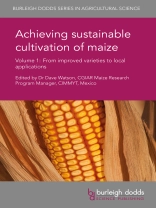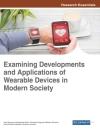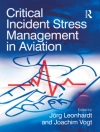- Reviews key challenges and advances in maize breeding methods;
- Discusses the development of varieties with enhanced nutritional and other properties such as improved protein content and abiotic stress resistance;
- Summarises key steps being taken to support smallholders growing maize in developing countries
Tabela de Conteúdo
Part 1 Genetic diversity and breeding
1.Ensuring the genetic diversity of maize and its wild relatives: J. Stephen Smith, Iowa State University, USA; Candice A. C. Gardner, USDA-ARS/Iowa State University, USA; and Denise E. Costich, CIMMYT Germplasm Bank (Maize Collection), Mexico;
2.Key challenges in maize breeding in sub-Saharan Africa: Baffour Badu-Apraku, IITA, Nigeria; M.A.B. Fakorede and R.O. Akinwale, Obafemi Awolowo University, Ile-Ife, Nigeria;
3.Developing maize-breeding methods and cultivars to meet the challenge of climate change: Marcelo J. Carena, North Dakota State University, USA;
4.Understanding and improving protein traits in maize: Yongrui Wu, National Key Laboratory of Plant Molecular Genetics, CAS Center for Excellence in Molecular Plant Sciences, Institute of Plant Physiology & Ecology, Shanghai Institutes for Biological Sciences, Chinese Academy of Sciences, China; and Joachim Messing, Waksman Institute of Microbiology, Rutgers University, USA;
5.Advances in mycotoxin-resistant maize varieties: Marilyn L. Warburton and W. Paul Williams, USDA-ARS Corn Host Plant Research Resistance Unit, USA;
6.Advances in cold-tolerant maize varieties: Csaba L. Marton and Zsuzsanna Tóthné Zsubori, MTA Centre for Agricultural Research, Hungary;
Part 2 Understanding and improving maize nutritional and sensory quality
7.Nutritional and nutraceutical/functional properties of maize: Dharam Paul Chaudhary, Indian Institute of Maize Research (IIMR), India;
8.Biofortification of maize: Eliab Simpungwe, Harvest Plus, Zambia;
9.Assessing and improving the nutritional quality of maize: Elena Lima-Cabello and Paula Robles-Bolivar, Spanish National Research Council (CSIC), Spain and Jose C. Jimenez-Lopez, Spanish National Research Council (CSIC), Spain and The University of Western Australia, Australia;
10.Analysing maize grain quality: Glen P. Fox and Tim J. O’Hare, The University of Queensland, Australia;
Part 3 Translating research into practice: improving maize cultivation in the developing world
11.Constraints in adopting improved technologies for maize cultivation: the case of Africa: T. Abdoulaye, The International Institute of Tropical Agriculture (IITA), Nigeria; A. S. Bamire and A. A. Akinola, Obafemi Awolowo University, Nigeria; and A. Alene, A. Menkir and V. Manyong, The International Institute of Tropical Agriculture (IITA), Nigeria;
12.Supporting small holders in maize cultivation: using an agricultural innovation systems approach: Mariana Wongtschowski and Remco Mur, Royal Tropical Institute (KIT), The Netherlands; and Carolina Camacho, the International Maize and Wheat Improvement Center (CIMMYT), Mexico;
13.Women and maize cultivation: increasing productivity through gender analysis: Cheryl Doss, Oxford University, UK;
Sobre o autor
Professor Glen Fox is the Anheuser-Busch Endowed Professor of Malting and Brewing Science at the University of California, USA. Previously, he was a Senior Fellow at the University of Queensland, Australia. He has many years experience working with barley breeding programmes, and malting and brewing industries in Australia and overseas. With these companies, his worked focused on the influence of barley quality on malting and brewing quality. He is a Fellow of the Institute of Brewing and Distilling. Professor Fox has over 250 book chapters, journal articles and conference presentations. He has also supervised over 50 post-graduates students mostly in the area of barley and malt quality. His current research interests include digger deeper into barley, malt, wort composition on beer quality.












